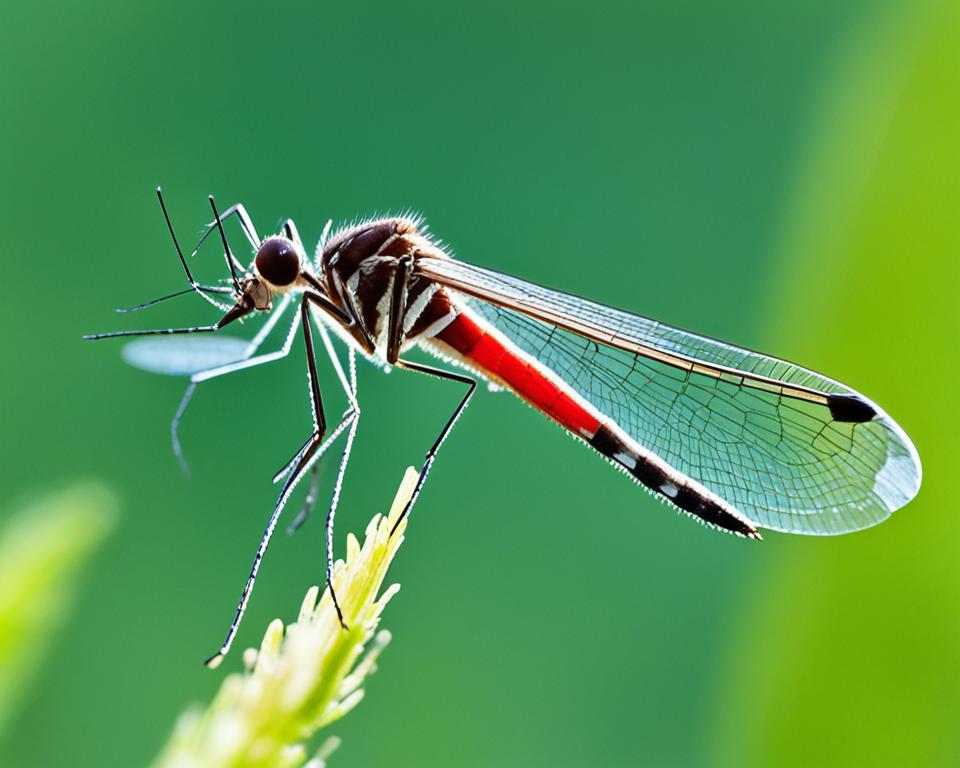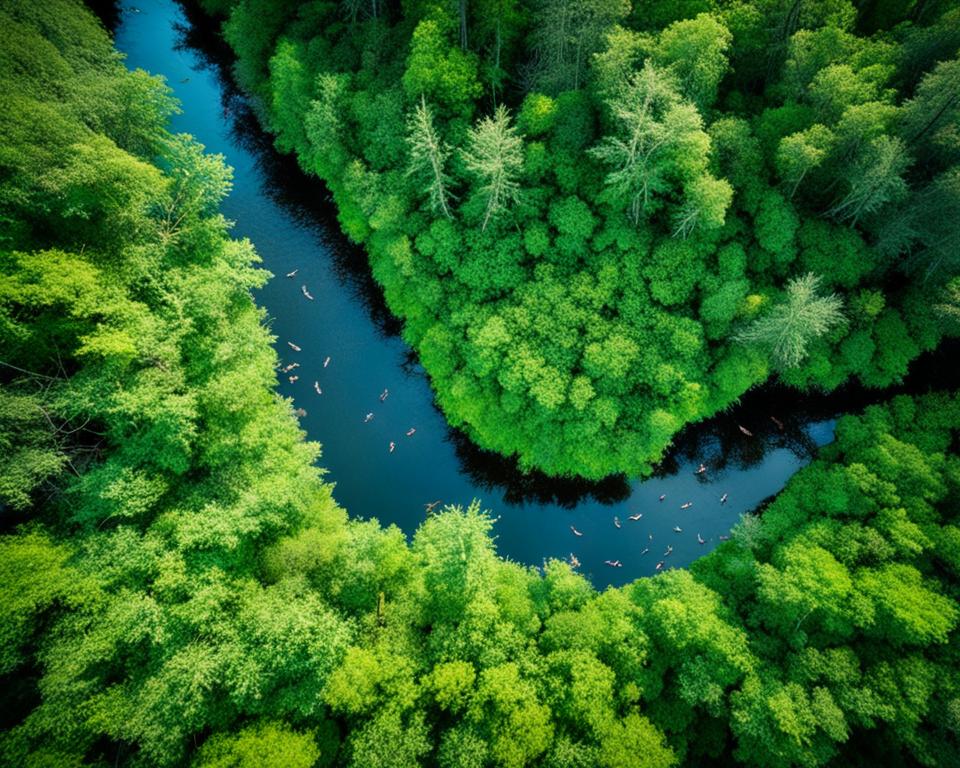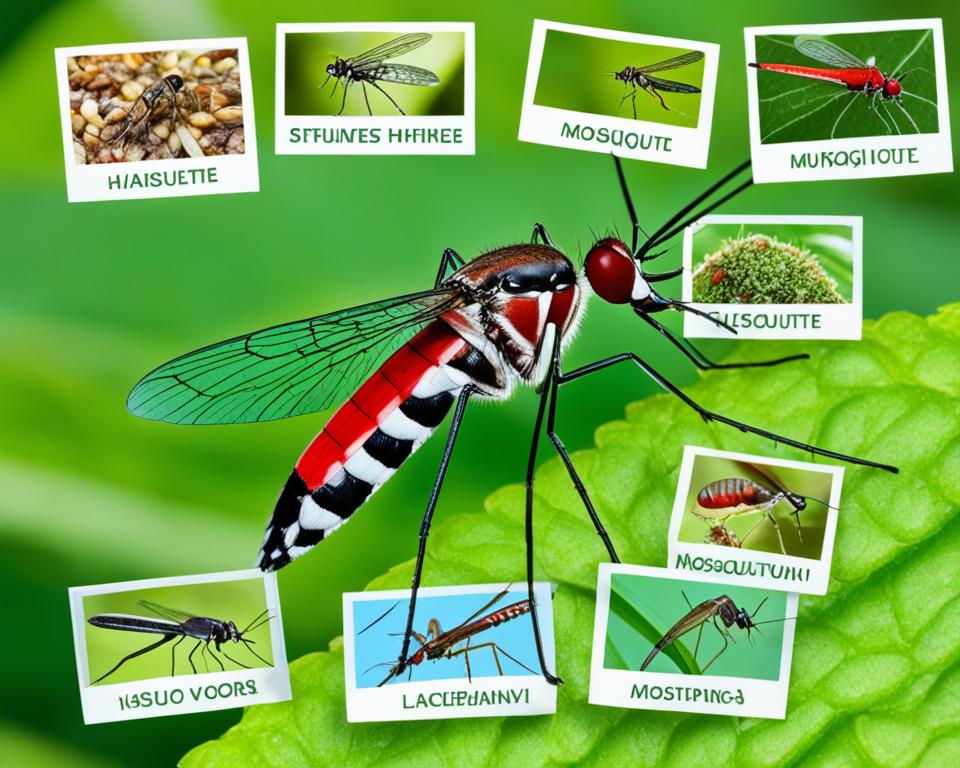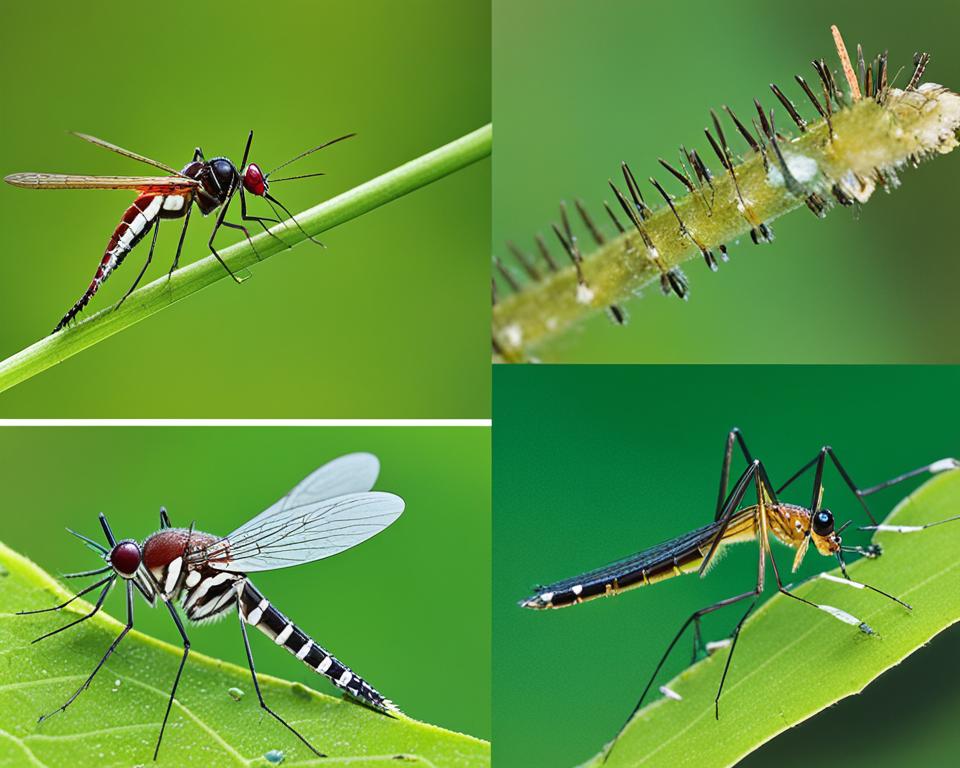What Do Mosquito hawks eat, or crane flies, are eye-catching insects for nature lovers? They eat a lot of things, surprising many. Their way of finding food will leave you intrigued. Let’s talk about the world of mosquito hawks and their feeding behaviors.
Key Takeaways
- Mosquito hawks, or crane flies, do not prey on mosquitoes despite their common name.
- Mosquito hawks have a varied and often surprising diet, including nectar, pollen, decaying organic matter, and small invertebrates.
- These long-legged insects have developed unique hunting techniques and feeding behaviors to effectively acquire their diverse range of food sources.
- Mosquito hawks play a vital role in the delicate balance of ecosystems as both consumers and prey.
- Understanding the dietary and nutritional requirements of mosquito hawks is crucial for ensuring their well-being and maintaining a healthy ecosystem.
Unraveling the Mysterious Mosquito Hawk Diet
Crane flies, also known as mosquito hawks, often get confused with smaller, noisier bugs. But these long-legged insects have a special tale to share about what they eat and how they feed.
Exploring the Strange and Fascinating World of Crane Flies
Many think mosquito hawks eat mosquitoes, but that’s not true. These odd insects munch on a wide array of foods. They enjoy nectar, pollen, decaying stuff, and even tiny creatures.
Why Understanding Their Eating Habits Matters
Figuring out what mosquito hawks eat is both intriguing and important. It helps us see how nature’s puzzle fits together.
Knowing about these insects shows us the balance nature needs to thrive.
What Do Mosquito Hawks Eat?
Despite their name, mosquito hawks, which are also known as crane flies, do not hunt mosquitoes. They surprise us with their varied diet, making them different from small, buzzing mosquitoes. These insects eat things like nectar, pollen, and even small bugs.
Breaking Down the Dietary Preferences of These Peculiar Insects
Even though mosquito hawks, or crane flies, look like mosquitoes, they are not eating them. These unique insects are not predators of mosquitoes. Rather, they munch on plants and keep the world clean by eating decaying stuff and small bugs.
Do Mosquito Hawks Pose Any Threat to Humans or Pets?
Many think mosquito hawks, or crane flies, are dangerous to people and pets, but they’re not. These big, long-legged bugs do not bite or sting. Plus, they don’t spread any diseases. Mosquito hawks are safe and help the ecosystem by recycling stuff and being food for other animals.
Mosquito Hawk Prey: Uncovering Their Food Sources
Mosquito hawks, or crane flies, eat many different things and surprise us with their diet. They are different from small, flying mosquitoes. Their diet includes nectar, pollen, decaying organic matter, and small animals.
From Nectar to Decaying Matter: The Diverse Menu of Crane Flies
Mosquito hawks, or crane flies, have a diverse diet. They eat nectar and pollen from flowers. They also consume decaying organic matter and small invertebrates like other bugs and spiders. Their varied diet helps them live in different places.
What’s interesting is how mosquito hawks change their diet based on what’s around them. They do this to stay healthy. This flexibility is key to their survival.

Learning about what mosquito hawks eat and how they find food is important. They have a big impact on their environment. They help with breaking down dead plants and animals. This helps keep nature healthy.
Crane Fly Feeding Behavior: A Closer Look
Mosquito hawks, also known as crane flies, have a unique way of finding and eating their food. They use special mosquito hawk hunting techniques and crane fly feeding behavior. These techniques help them get food from a variety of sources.
How Mosquito Hawks Hunt and Consume Their Meals
Crane flies are great at hunting. They have long legs and are very quick. But unlike small mosquitoes, mosquito hawks don’t only eat blood. They eat many things like nectar, pollen, and small bugs.
Fascinating Adaptations for Efficient Foraging
Mosquito hawks have changed over time to be great at finding food. They have long mouthparts and sensitive antennae. This helps them find food and decide if it’s a good source. Their quick flight lets them move easily from one food spot to another. Their ways of finding and eating food show how amazing they are at surviving.
Learning about how mosquito hawks eat helps us see the role they play in nature. They help keep the environment in balance by eating various food sources.
The Role of Mosquito Hawks in the Ecosystem
Mosquito hawks, also called crane flies, are essential for keeping ecosystems in balance. They are both consumers and prey. This makes them a key part of the food webs that support life everywhere. Learning about their impact on insect populations shows us how everything in nature is connected.
Understanding Their Impact on Insecting Populations
These creatures eat many things like nectar, decaying stuff, and small bugs. This mix helps control the number of insects. Such feeding habits keep the ecosystem from being taken over by one insect type. Mosquito hawks are vital for the stability of the food web, leading to a diverse and thriving insect world.
Balancing Nature’s Delicate Food Web
Mosquito hawks are a big part of many animals’ diets, such as birds and amphibians. This makes them crucial for the ecosystem’s balance. They are both food and predators. This dual role helps maintain the complex life web. It keeps natural spaces healthy and strong.

Mosquito Hawk Dietary Needs: A Nutritional Perspective
Mosquito hawks, also known as crane flies, eat in interesting ways because of what they need nutritionally. They like nectar and pollen but also snack on small invertebrates. This mix helps them stay healthy.
What Drives Their Food Choices?
Mosquito hawks’ food choices match their unique needs and their environment. They eat things like nectar, pollen, and decaying organic matter to stay healthy. Choosing these foods makes them vital for pollinating plants and breaking down dead stuff.
Ensuring a Healthy and Balanced Diet for Crane Flies
For mosquito hawks, eating right is key to living well and doing their job. They need a varied diet to be healthy and support their role in nature. Knowing what they eat helps us see their place in the ecosystem.

Myths and Misconceptions About Mosquito Hawk Eating Habits
Despite looking interesting and helping the environment, what do mosquito hawks eat, known as crane flies, face a lot of misunderstanding about their eating habits. There are lots of false ideas around what they eat. This lack of correct knowledge leads to many myths about what they feed on.
Many believe what do mosquito hawks eat mosquitoes. But, the truth is, they don’t eat mosquitoes at all. These insects enjoy things like nectar, pollen, and decaying plants. They have no interest in catching or eating mosquitoes, even though the name suggests they do.
There’s also a myth that mosquito hawks can be harmful to us and our pets. Despite looking big and maybe a bit scary, crane flies are harmless. They can’t bite or sting, and they pose no danger to us or our animals.
| Myth | Fact |
|---|---|
| Mosquito hawks eat mosquitoes | Crane flies do not prey on mosquitoes |
| Mosquito hawks are dangerous to humans and pets | Crane flies are completely harmless and do not bite or sting |
| Mosquito hawks have a limited diet | Crane flies have a diverse diet including nectar, pollen, and decaying matter |
Learning what mosquito hawks really eat and how they act helps us understand their vital part in the environment. It’s key to dispel the myths and false beliefs about these insects. This way, we can see their true value in nature.
The Fascinating World of Crane Flying Predators
What do Mosquito hawks eat, also known as crane flies, have unique ways of feeding? They play a vital role in the environment. But, they also have many natural predators. This shows how nature is finely balanced.
Exploring the Natural Enemies of Mosquito Hawks
Despite their fragile appearance, what do mosquito hawks eat have many predators. Birds like swallows and flycatchers hunt and eat them. Spiders and large insects, including dragonflies, also see them as prey. Even bats join in, making the list of enemies long.
Survival Strategies in the Face of Predation
To survive, what do mosquito hawks eat has developed strategies against predators. They can fly away quickly and move with agility to avoid being caught. Some have evolved to have camouflaged patterns. This helps them hide from predators. These skills show the evolutionary success of crane flies.
FAQ
What do mosquito hawks eat?
Mosquito hawks, or crane flies, don’t eat mosquitoes. They enjoy nectar, pollen, and decayed organic matter. They also eat small invertebrates.
Are mosquito hawks harmful to humans or pets?
No, mosquito hawks are not harmful. They do not bite or sting and cannot spread diseases. They are good for the environment.
What are the main food sources for mosquito hawks?
These insects eat various things like nectar and pollen. They also consume decaying matter, other insects, and spiders. Their long legs help them search for and eat their food.
What do mosquito hawks eat and consume their prey?
These flies have special ways to find and eat food. Their long legs help them move fast. They use their proboscis to sip liquids and eat smaller items.
What role do mosquito hawks play in the ecosystem?
Mosquito hawks are key in keeping ecosystems in balance. They eat insects and spiders. They also help break down dead plants. This helps recycle nutrients.
What are the nutritional requirements of mosquito hawks?
They need a mix of nutrients like carbs, proteins, and fats. Their diet is based on their body’s needs. This ensures they can live well in their environment.
What are some common myths and misconceptions about mosquito hawk eating habits?
Some think mosquito hawks eat mosquitoes, but they don’t. They are not harmful to people or pets. These ideas are not true.
What are the natural predators of mosquito hawks?
Various animals eat mosquito hawks. This includes birds and spiders. To avoid being caught, they can fly quickly and use camouflage.






